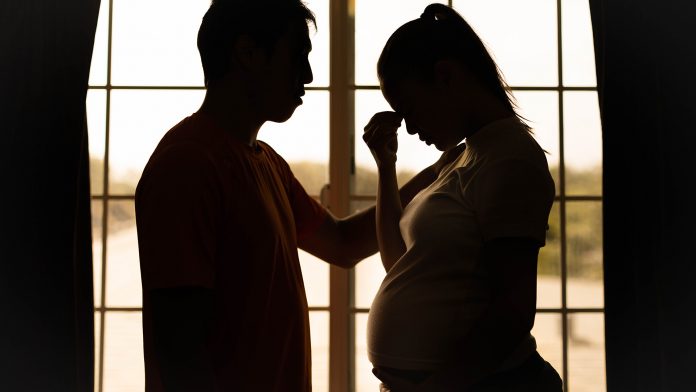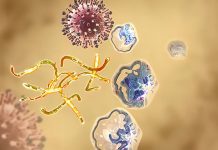
A new study has found that domestic abuse against women during pregnancy can have a significant impact on baby brain development.
Researchers at the University of Bath worked with researchers from the University of Cape Town to analyse brain scans of 143 South African infants whose mothers had experienced intimate partner violence (IPV) during pregnancy.
IPV includes emotional, physical and/or sexual abuse or assault. To understand the effect of domestic abuse on baby brain development, brain MRI scans were taken when the infants were only three weeks old on average. Therefore, any changes noted were likely to have developed in the womb.
The findings are published in the journal Developmental Cognitive Neuroscience.
Exposure to abuse and baby brain development
The researchers found that exposure to IPV during pregnancy is associated with changes in baby brain development and structure identified shortly after birth. This was clear even when the researchers accounted for maternal alcohol use and smoking throughout pregnancy and pregnancy complications.
Importantly, the effects of IPV exposure may differ by the baby’s sex. For girls, their mother’s exposure to IPV during pregnancy was linked to a smaller amygdala, an area of the brain involved in emotional and social development. For boys, IPV exposure was associated with a larger caudate nucleus, an area of the brain involved in multiple functions, including the execution of movement, learning, memory, reward, and motivation.
These changes in baby brain development could offer an explanation for why children whose mothers experience high levels of stress during pregnancy are more likely to have psychological issues in childhood or later life. The sex differences recorded may explain how different genders may develop different mental health problems. The researchers did not analyse any links to emotional and cognitive development in children.
Lead researcher, Dr Lucy Hiscox from the Department of Psychology at Bath, explained: “Our findings are a call to act on the three Rs of domestic violence awareness: recognise, respond, and refer. Preventing or quickly acting to help women escape domestic violence may be an effective way of supporting healthy brain development in children.”
The first study to examine the effects of domestic abuse on offspring
Previous studies have analysed the impact of maternal stress in pregnancy and the impact on children’s brain development, but this is the first to examine domestic abuse. The children involved in this study are now aged between eight and nine, and follow-up research is now testing whether the differences in brain structure seen at three weeks old continued or altered as they aged.
Co-author Professor Kirsty Donald, a paediatric neurologist and Head of the Division of Developmental Paediatrics at UCT, added: “Strategies that help identify and support pregnant mums for multiple potential risks to their unborn babies will require an integrated health system approach and should be considered a public health priority.”
























